Are you contemplating leaving your job because the company values no longer resonate with you? It's a challenging decision that many face, and crafting the perfect resignation letter can help you express your feelings while maintaining professionalism. In this article, we will guide you through creating a tailored resignation letter that reflects your reasons for departure and respects your journey. Join us as we explore essential tips and templates to make this transition smoother for you.

Polite and formal tone
A resignation stemming from misalignment with company values often reflects a person's desire to uphold their principles. Factors such as workplace culture, ethical standards, and personal beliefs can drive this decision. Resigning politely ensures a professional departure. Offboarding processes may include notifying Human Resources (HR) departments, submitting formal documentation, and determining final employment dates. Communication should be clear, expressing gratitude for experiences gained. An example could involve a corporate setting where diversity and inclusion are not prioritally observed. In such environments, an employee may find themselves at odds with leadership approaches or peer behaviors, necessitating a transition to an organization that aligns better with their values and aspirations for a positive workplace culture.
Clear statement of resignation
Resignation from a position occurs when an individual chooses to leave their job, often due to misalignment of personal or professional values with the organization's mission or culture. A clear and concise resignation letter should include a formal declaration of the decision to resign, the specific position held, and ideally, a brief explanation of the reasons for the departure, emphasizing the values in question. Furthermore, it's important to express gratitude for the opportunities provided during the tenure at the organization. This forms a professional closure while maintaining a positive relationship for potential future interactions or references. A notice period, usually two weeks, is also commonly included to ensure a smooth transition.
Brief explanation of non-alignment
Non-alignment with organizational values can lead to significant discontent and productivity issues within a workplace. An employee may find themselves at odds with the company's mission, vision, or ethical standards, creating a disconnect that hinders their ability to contribute meaningfully. For instance, a commitment to sustainability may clash with practices that prioritize profit over environmentally-friendly approaches. Alternatively, an emphasis on collaboration may be undermined by a toxic competitive culture. These disparities can ultimately prompt an employee to seek out environments where their values align more closely with those of the organization, leading to a resignation that reflects their desire for a more congruent workplace.
Gratitude for opportunities
An employee may determine to resign from a position at a specific organization due to a misalignment with the company's core values, such as ethics or sustainability. In this context, an individual might express gratitude for opportunities, demonstrating appreciation for professional growth during their tenure, which lasted perhaps several years. They may reference specific experiences or projects undertaken, contributing to both personal and professional development. Additionally, they could mention the positive relationships formed with colleagues, highlighting teamwork and collaboration, despite the eventual decision to part ways. This resignation could take place in sectors like technology or finance, where organizational values often play a crucial role in employee engagement and retention.
Offer to assist with transition
Resigning from a position due to misalignment with company values can be a tough decision. Employees may find it essential to articulate their experiences clearly, highlighting key issues such as ethical discrepancies or cultural mismatches that influenced their choice. For example, a marketing manager at a tech startup might express discomfort with aggressive sales tactics that contradict their personal belief in transparency. In the resignation letter, the employee can also extend an offer to assist with the transition process, ensuring that their responsibilities are handed over smoothly. This gesture not only demonstrates professionalism but also fosters goodwill in their departure from the team and the organization.
Letter Template For Resignation Due To Non-Alignment With Values Samples
Letter template of resignation for disconnection with company principles
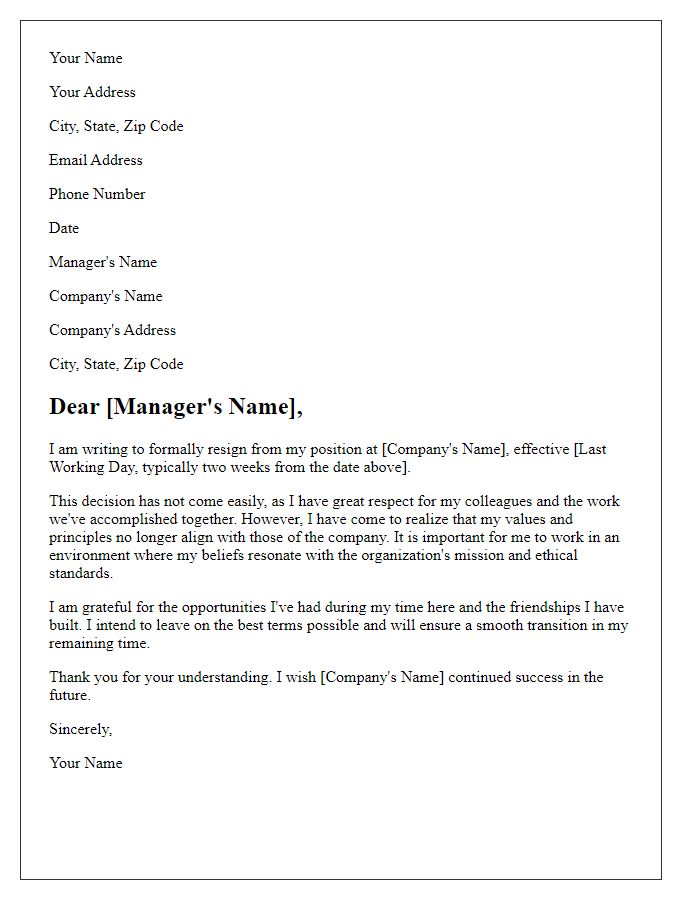

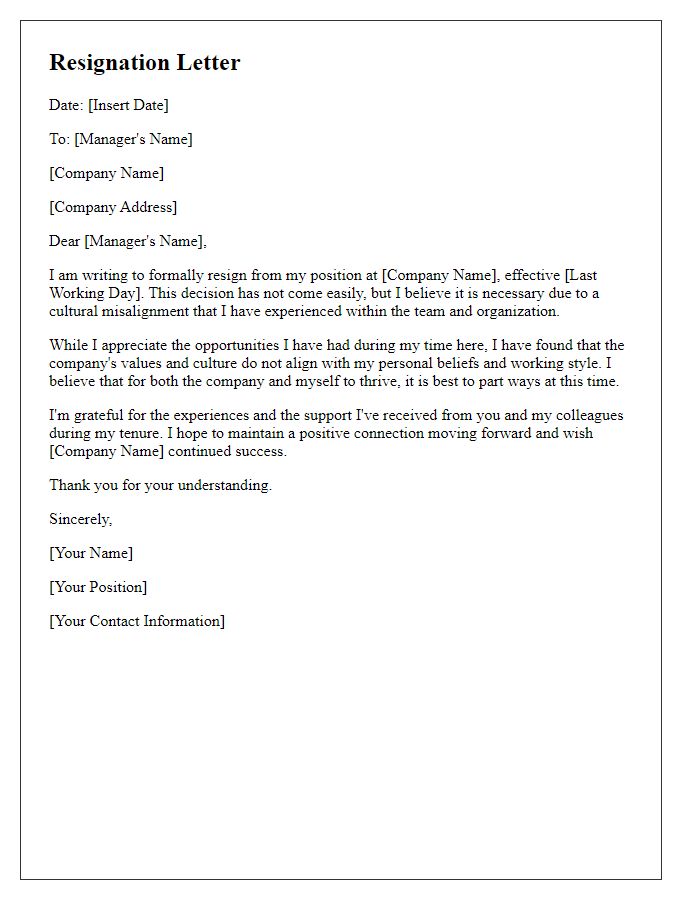
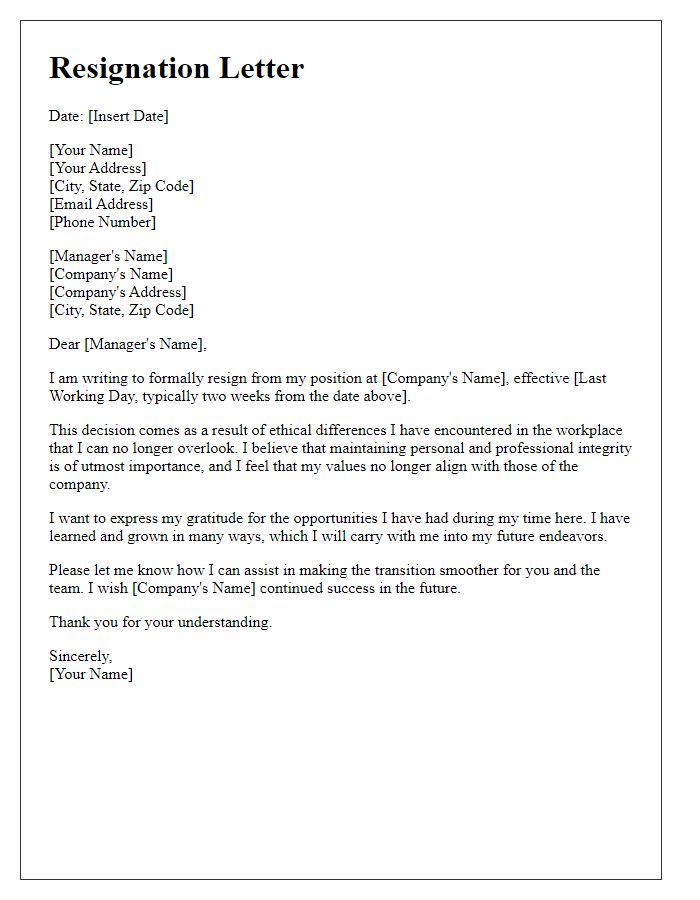
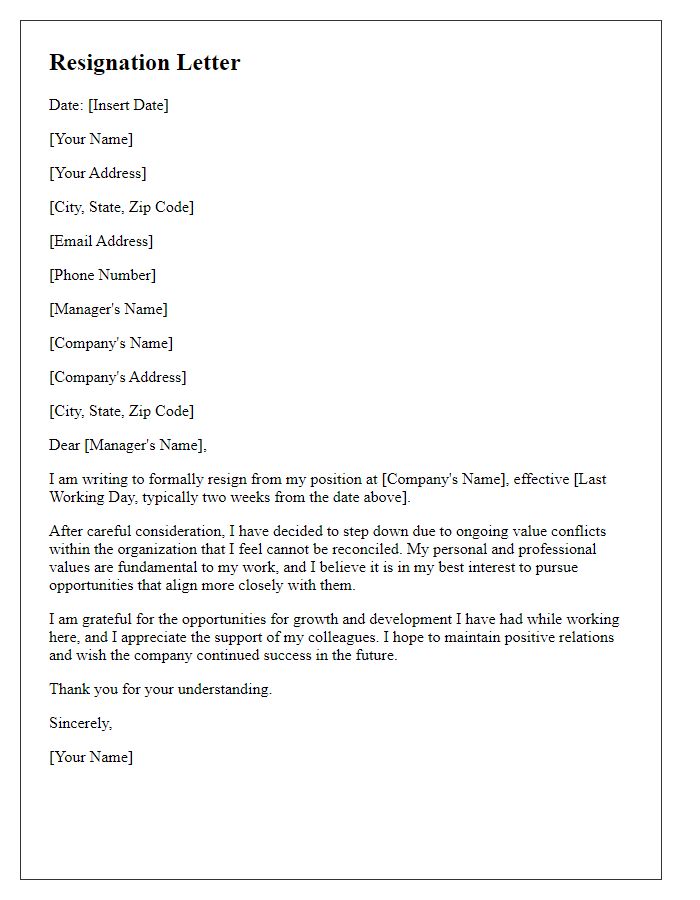
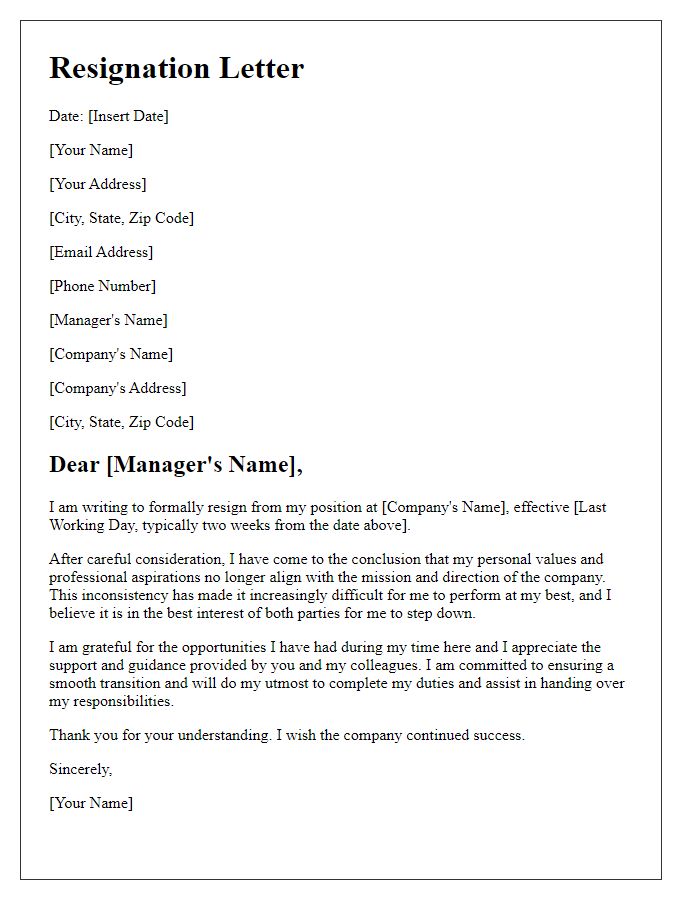
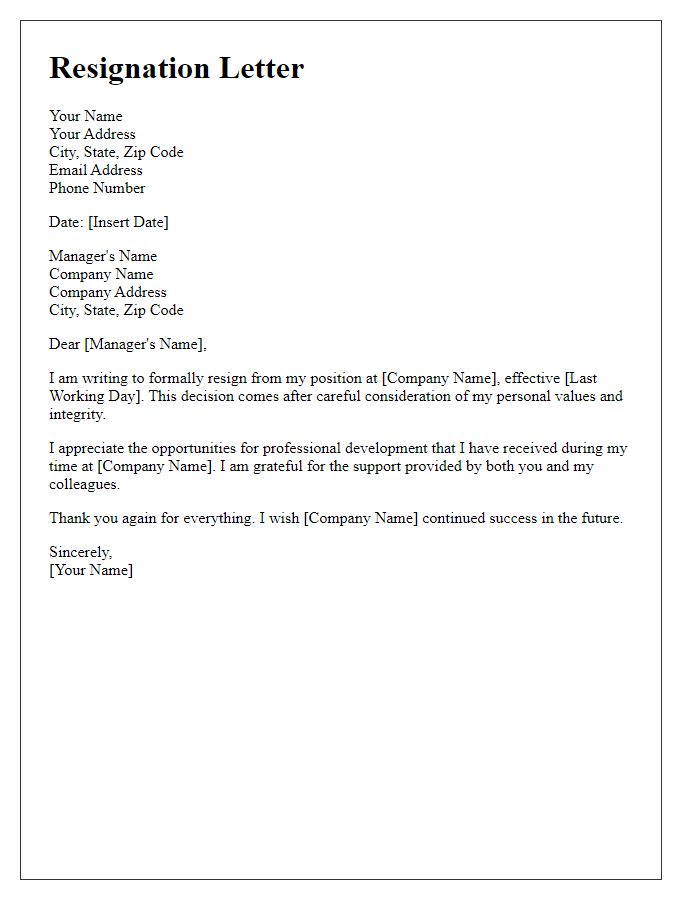
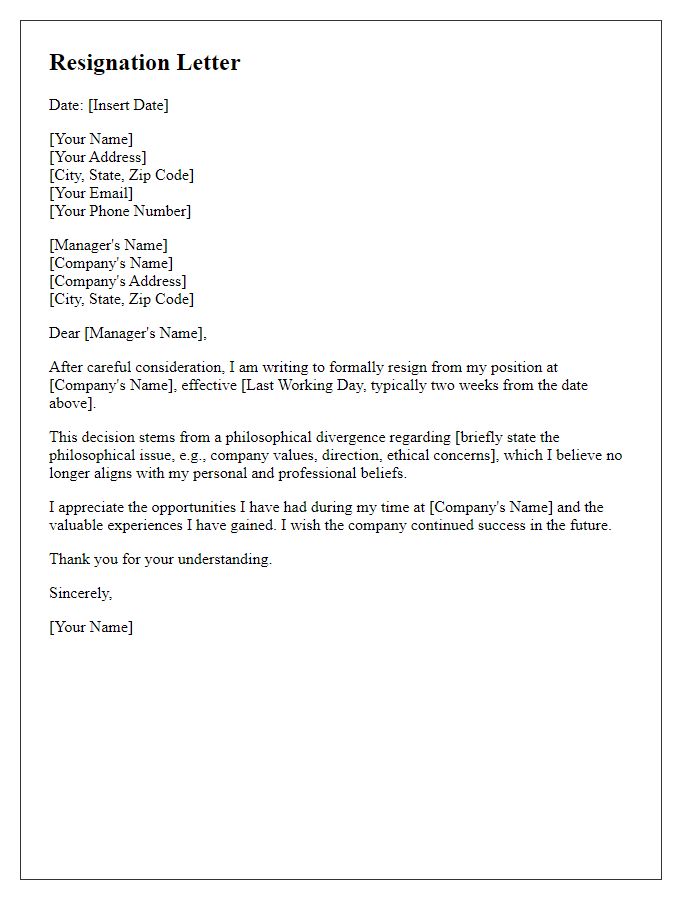
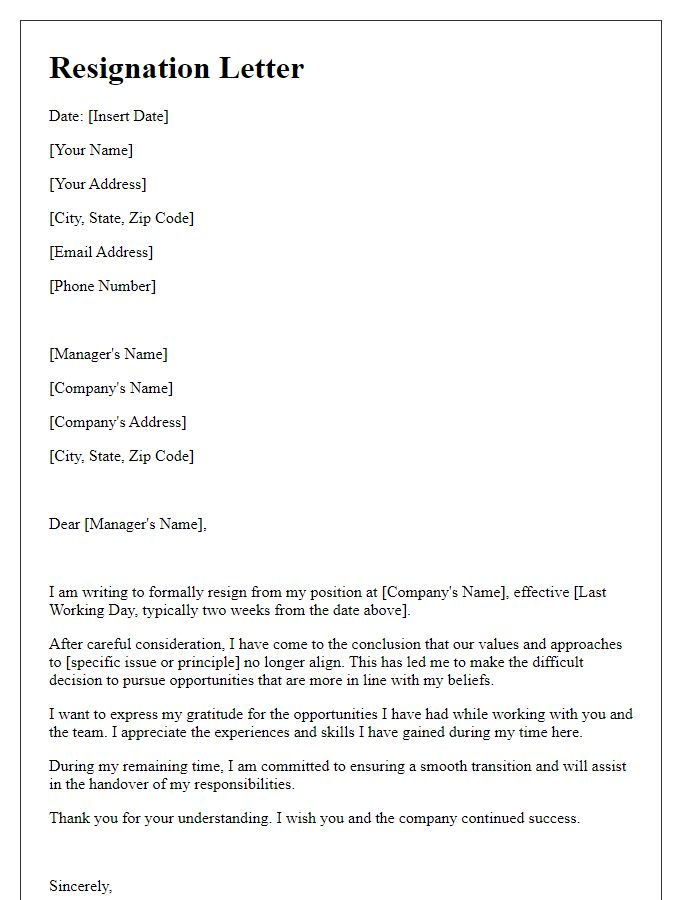
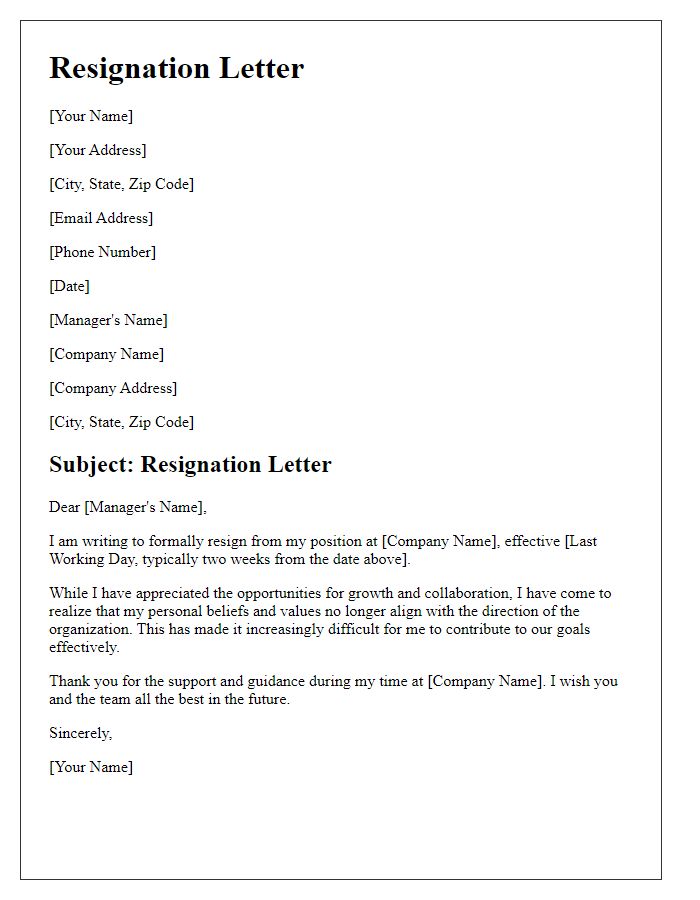
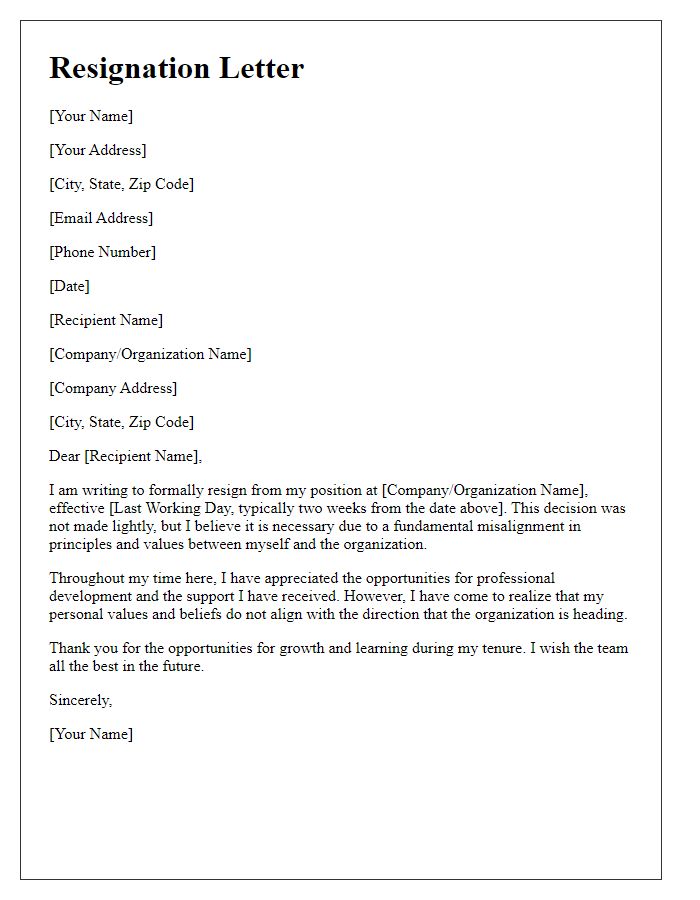


Comments